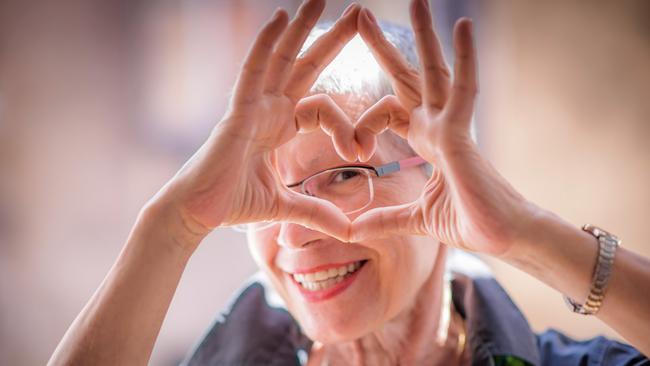Do what it takes to enjoy old age
Quality of later life is far from universal, according to the Australian Institute of Health and Welfare.

Everyone is growing older but, for those fortunate enough to make it to old age, the experience of being old differs from person to person. Quality of later life is far from universal.
According to the Australian Institute of Health and Welfare, men aged 65 in 2015 could expect to live an additional nine years free of disability and about 10 years with some level of disability, including three years with severe or profound core activity limitation. For women the same age, the expectation was for another 10 years free of disability, about 12 years with some disability, including six years with severe or profound core activity limitation.
For both sexes, that means a touch over half of retirement spent with a disability, although with women obviously still living longer than men. Of course, a lot depends on how well people spend their earlier years and, often times, their access to quality healthcare. Bad habits, unnecessary risk-taking and neglected problems have a tendency to mount up, coming to a head when you are least prepared to respond.
Are you doing what it takes now to live your retirement and old age as you picture it?
With an ageing population, dementia is becoming more common, but it affects men and women differently. University of Queensland health biostatistician Michael Waller, in conjunction with the Florey Institute of Neuroscience and Mental Health, examined 1.1 million Australian death certificates for any mention of dementia.
“Our study looked for records where dementia was listed either as the cause of death or as an underlying cause,” Waller says, following the study’s publication in the American Journal of Epidemiology.
Women have a 14 per cent higher rate of death from the most common form of dementia, Alzheimer’s disease, while men have a 20 per cent higher rate of death from vascular disease, pointing to underlying biological factors.
“These factors might include hormonal changes, particularly during menopause, and even differential risk for other conditions such as cardiovascular disease,” Waller says.
“There’s a real need to look at the whole picture when studying how a disease like dementia affects a population.”
The Heart Foundation has launched a new calculator to help people aged 35 to 75 compare their “heart age” to their actual age.
In doing so, the Heart Age Calculator aims to help people understand their own risks and provide advice on what to do next. There are questions about age, sex, smoking and diabetes status, body mass index, blood pressure levels, cholesterol levels if known, and family history.
“Knowing your risk is the first step towards avoiding a heart attack or stroke,” says the foundation’s chief medical adviser,
Garry Jennings. “The higher your heart age compared to your actual age, the higher your risk of having a heart attack or stroke. If your heart age is greater than your actual age, we advise you to make an appointment with your doctor for a heart health check.”
According to the AIHW, coronary heart disease was the biggest cause of death for men in 2016 and the second biggest for women.
Australians are more negative than other nationalities when it comes to growing old, with only 29 per cent looking forward to it, compared with 33 per cent globally. That is the finding from an Ipsos study, conducted in partnership with the Britain-based Centre for Ageing Better, that also has found only 44 per cent of Australians expect to be fit and healthy in old age, compared with 57 per cent globally.
A key issue is people’s perception of how older people are treated. Asked if television, film and advertising made old age seem exciting and full of potential, only 31 per cent of respondents agreed — and only 22 per cent of Australians.
Ipsos Australia director David Elliott says the survey also shows Australian respondents are among the least likely to believe it is the job of the young to care for ageing relatives.
“This is not new or surprising,” Elliott says. “However, it does highlight the importance of a healthy, safe and respectful aged-care system.”



To join the conversation, please log in. Don't have an account? Register
Join the conversation, you are commenting as Logout